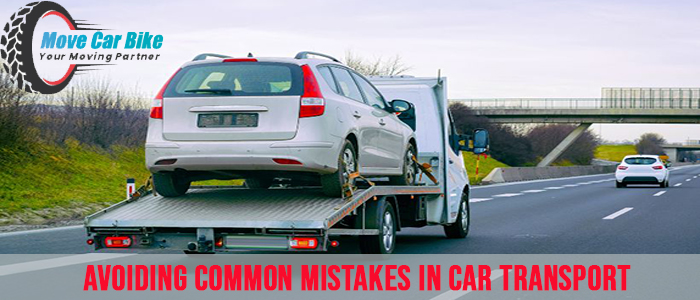Are you planning to transport your car, but worried about making costly mistakes along the way? Look no further! In this comprehensive guide, we will walk you through the top pitfalls to avoid when it comes to car transport. Whether you’re relocating to a new city or just purchased a new vehicle from another state, knowing how to navigate the car transport process can save you time, money, and unnecessary stress. From choosing the right car transport company to preparing your vehicle for shipment, we’ve got you covered. With our expert tips and insights, you’ll be well-equipped to make informed decisions and ensure a smooth and hassle-free car transport experience. So, buckle up and get ready to steer clear of common mistakes, as we dive into this essential guide on avoiding pitfalls in car transport.
Common Mistakes in Car Transport
Transporting a car can be a difficult task, especially if you’re not familiar with the process. To ensure a successful and stress-free car transport experience, it’s important to be aware of the most common mistakes people make. By avoiding these pitfalls, you can save yourself from unnecessary headaches and expenses. Let’s take a closer look at some of the most common mistakes in car transport and how you can avoid them.
Not Researching Transport Companies
One of the biggest mistakes people make when it comes to car transport services is not doing enough research on the transport companies they consider. It’s crucial to choose a reputable and reliable company that can safely and efficiently transport your vehicle. Before making a decision, take the time to read reviews, check their licensing and insurance information, and compare quotes from multiple companies. By doing your due diligence, you can ensure that your car is in good hands.
Choosing the Wrong Type of Car Transport
Another common mistake is selecting the wrong type of transport for your vehicle. There are various options available, including open transport, enclosed transport, and door-to-door transport. Each option has its own advantages and disadvantages, depending on your specific needs and budget. For example, open transport is more cost-effective but exposes your car to the elements, while enclosed transport provides extra protection but comes at a higher price. Consider factors such as the value of your vehicle, the distance of the transport, and your personal preferences before deciding on the type of transport that suits you best.
Not Adequately Preparing the Vehicle
Properly preparing your vehicle for transport is essential to avoid any damage during the journey. Many people overlook this step and end up regretting it later. Start by thoroughly cleaning your car, both inside and out, to make it easier to inspect for any existing damage. Take photographs of your vehicle from all angles as evidence of its condition before transport. Remove any personal belongings and valuables to prevent loss or damage. Ensure that your car has a sufficient amount of fuel, as well as properly inflated tires. By taking these simple steps, you can minimize the risk of any mishaps during transport.
Not Understanding Insurance Coverage
Insurance coverage is a critical aspect of car transport that many people fail to fully comprehend. It’s important to understand what exactly is covered by the transport company’s insurance and whether it is sufficient for your needs. In some cases, additional insurance may be necessary to ensure that your vehicle is fully protected. Take the time to review the insurance policy and ask any questions you may have before finalizing the transport arrangements. By being proactive about insurance, you can have peace of mind knowing that you’re adequately covered in the event of any unforeseen circumstances.
Ignoring Proper Documentation
Proper documentation is often overlooked but is crucial when it comes to car transport. Make sure you have all the necessary paperwork in order to avoid any delays or complications. This includes the vehicle’s registration, proof of ownership, and any relevant permits or licenses. Additionally, ensure that you have a copy of the transport agreement or contract, detailing the terms and conditions of the transport. Keeping these documents organized and easily accessible will make the process much smoother and more efficient.
Failing to Communicate Effectively with the Car Transport Company
Clear and effective communication with the transport company is essential for a successful car transport experience. Make sure to provide accurate and detailed information about your vehicle, including its make, model, and any modifications. Inform the transport company of any specific requirements or concerns you may have. Stay in touch with the company throughout the transport process to stay updated on the progress and address any questions or issues that may arise. By establishing good communication, you can ensure that everyone is on the same page. Also your car transport goes smoothly.
Poor Scheduling and Timing
Timing is everything when it comes to car transport. Many people make the mistake of not scheduling their transport in advance or not allowing enough time for the delivery. It’s important to plan ahead and book your transport well in advance, especially during peak seasons when demand is high. Consider factors such as the distance of the transport, the availability of the transport company, and any specific delivery requirements you may have. By properly scheduling your transport and allowing enough time for the delivery. You can avoid unnecessary delays and ensure a timely arrival of your vehicle.
Overlooking Reviews and Testimonials
When choosing a car transport company, it’s crucial to take into account the experiences of other customers. Reading reviews and testimonials can provide valuable insights into the reliability and professionalism of a company. Look for feedback about the company’s customer service, timeliness, and the overall satisfaction of previous clients. Additionally, consider asking for recommendations from friends, family, or colleagues who have recently used vehicle transport services. By listening to the experiences of others, you can make a more informed decision and choose a company that meets your expectations.
Conclusion
Transporting your car doesn’t have to be a daunting task filled with potential mistakes. By being aware of the common pitfalls and taking the necessary precautions, you can ensure a smooth and hassle-free car transport experience. Remember to thoroughly research transport companies, choose the right type of transport. Adequately prepare your vehicle, understand insurance coverage, and have all the necessary documentation in order. Effective communication with the transport company, proper scheduling, and considering reviews and testimonials are also essential. By following these expert tips and insights, you’ll be well-equipped to avoid common mistakes and enjoy a successful car transport journey. So, take the wheel and transport your car with confidence!

